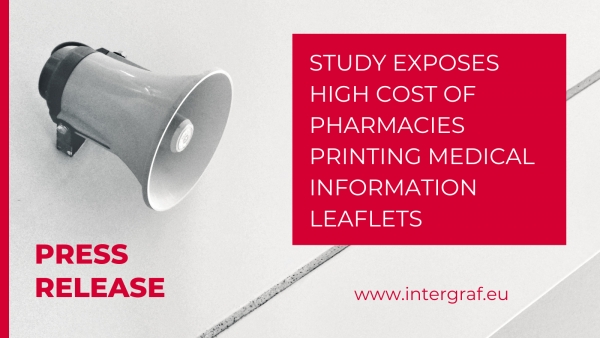30 June 2020

Important Reminder: Apprenticeship framework withdrawal from 31 July
In May 2019, the Department for Education (DfE) confirmed that all apprenticeship frameworks were to be discontinued from 31 July 2020. Here at the BPIF, along with the Association for Education and Learning Providers (AELP) and other apprenticeship training providers, we have been lobbying hard against this where there is no equivalent apprenticeship standard in place, for example an equivalent Level 2 Print Apprenticeship Standard.
We were hopeful that with the disruption caused by Covid-19 and the resulting drop in apprenticeship starts that the DfE would postpone this withdrawal to support employers with recruitment and staff development needs as we come out of the other side of this pandemic. This is not the case and the DfE has reminded apprenticeship providers that all apprenticeship frameworks will be withdrawn to new starts on 31 July 2020.
We have now submitted our application for the Level 2 Print Apprenticeship Standard, but once this is approved there is still a long way to go to get the standard ready to deliver, meaning that this will not be in place for 1st August 2020, in fact, it is likely to be academic year 2021/22 when this will be ready for delivery. This means that if you have plans to recruit an apprentice or upskill your current staff members by way of the existing Level 2 Print Apprenticeship, this must happen before 31 July 2020.
We understand that some businesses will not be in a position to do this and that businesses will have learning and development needs at Level 2 beyond 31 July 2020 so we have been looking into alternative apprenticeships which will allow an apprentice to gain the key knowledge, skills and behaviours required at Level 2 in the print industry.
From 1 August 2020 we will be introducing the Level 2 Lean Manufacturing Operative Apprenticeship Standard
https://www.instituteforapprenticeships.org/apprenticeship-standards/lean-manufacturing-operative/
Whilst this apprenticeship standard is not a print specific apprenticeship, the transferable knowledge, skills and behaviours apply to the manufacturing industry and our team are excited about the added value we will be able to offer through delivery of this standard
Completion of the lean manufacturing operative apprenticeship standard will give the apprentice a level 2 diploma in manufacturing, and, we will also deliver one below print qualifications relevant to the process in which the print operative works, the same as what an apprentice would achieve on the current framework;
- Level 2 Machine Printing
- Level 2 Pre-Press
- Level 2 Print Finishing
So, the apprentice will be getting two accredited qualification and you as the employer will be getting an apprentice with the skills, knowledge and behaviours required not only to be a valuable print operative but the added value of being able to work in ways which can reduce waste without sacrificing productivity.
More information will follow in June regarding this apprenticeship standard; however, an overview can be found below and we welcome feedback as to how we may further add value to this apprenticeship to support your business needs.
For now, we are still accepting new starts onto the existing framework and will continue to do so up until 31 July. If you are considering a Level 2 Print Apprenticeship for your business, on the current apprenticeship framework please contact Cathy Hughes who will be able to support with this.
Lean Manufacturing Operative - Apprenticeship Standard
Apprenticeship Level 2 / Maximum Funding Value £6000 / Duration 18months
Core Knowledge: A Lean Manufacturing Operative will have the following knowledge and understanding of:
- Health & Safety: Relevant statutory, organisational and health and safety regulations relating to lean manufacturing operations and safe practices
- Environmental: Compliance procedures/systems in line with regulatory requirements e.g. ISO 14001 or other relevant environmental standards
- Production: Their individual roles and responsibilities within the organisation and the flexibility required to deliver products to meet customers costs/delivery targets/requirements e.g. Just in time (JIT)
- Lean Manufacturing Operations: Manufacturing standard operation procedures (SOPs) adherence and development of lean processes
- Quality Control: Process equipment monitoring, data collection, error proofing and operating procedures e.g. ISO 9002 or other relevant quality standard
- Problem Solving: The tools and methods of effective problem-solving using data, reports and documents to resolve production related issues e.g. A3 report, graphs, matrices and escalate concerns
- Continuous Improvement: How to study and identify ways to improve the safety, quality, cost or process efficiency using lean manufacturing tools e.g. kaizen
- Communication: How to share information using a range of methods within the manufacturing environment e.g. oral, written, electronic, information boards, visual displays
- Work Place Organisation: How to maintain a safe and efficient work site through work place organisation e.g. 5s and process ownership
Core Skills: A Lean Manufacturing Operative will have the skill and understanding to:
- Health & Safety: Work safely at all times, complying with health and safety legislation, regulations, and other relevant guidelines. Identifying risks within their processes and support/carry out countermeasure activities to improve safe working. Manage tooling, equipment and materials daily in-line with supplier standards e.g. COSHH (Control of Substances Hazardous to Health).
- Environmental: Comply with environmental procedures and systems and contribute to the achievement of specific standards e.g. ISO 14001 or other relevant environmental standards and use the 4R's (Reduce, Re-use, Recycle, Recover) where possible.
- Production: Demonstrate their ability to carry out their role effectively, efficiently and flexibly maintaining lean manufacturing principles to meet customer's demands e.g. JIT
- Lean Manufacturing Operations: Demonstrate their skill and knowledge following SOPs and building their versatility across a number of processes and process areas. Select and use appropriate tools, equipment and materials to carry out the manufacturing operation
- Quality Control: Demonstrate appropriate process documentation control. Accurately completing check sheets, monitoring process and equipment data efficiently and legibly using the correct terminology required to meet the quality standard e.g. ISO 9002
- Problem Solving: Demonstrate their ability to identify and resolve problems within the lean manufacturing environment using effective problem-solving tools and techniques. Manage problems that may occur during the manufacturing process within the limits of their responsibility and escalate as appropriate
- Continuous Improvement: Generate ideas and contribute to process improvement activities individually or as part of a team through fact finding and analysis to improve the safety, environment, quality, cost or production process. Identifying and eliminating the 7 wastes (defects, over production, transportation, waiting, inventory, motion, and processing)
- Communication: Demonstrate communication skills which include oral, written, electronic (PC), information boards or visual displays to effectively share information
- Workplace Organisation: Maintains and monitors the work site efficiently and effectively at all times using the elements of sifting, sorting, sweeping, spick & span (5's) within the lean manufacturing environment
Core Behaviours Requirements: A Lean Manufacturing Operative requires the behaviours that will ensure they are:
- Punctual, reliable and takes responsibility for their own actions.
- Show respect for others, having regard for diversity and equality.
- Respond positively to change in the working environment.
- Integrates within the team and supports others.
- Can work independently and effectively in challenging situations.
- Maintains quality of work under pressure.
- An open and honest communicator.
- Listens to other people's opinions.
- A positive and respectful attitude.
- Follows instructions and guidance and demonstrates attention to detail.
- Seeks opportunities to develop and adapt to different situations, environments, or technologies.
 Intergraf Economic News (Paper Prices) - March 2024
Intergraf Economic News (Paper Prices) - March 2024
18 March 2024
Access the latest edition of the Economic Newsletter for the European Printing Industry for data on paper consumption, and pricing data for pulp, paper and recovered paper. Data for packaging papers and board is also available with this edition.
 STUDY EXPOSES HIGH COST OF PHARMACIES PRINTING MEDICAL INFORMATION LEAFLETS
STUDY EXPOSES HIGH COST OF PHARMACIES PRINTING MEDICAL INFORMATION LEAFLETS
7 March 2024
Intergraf welcomes the release of a study by our partner MLPS (Medical Leaflet = Patient Safety), a subgroup of the European Carton Manufacturers Association (ECMA) shedding light on the potential economic costs associated with the proposed use of Print on Demand (PoD) leaflets in the pharmaceutical legislation revision.

The BPIF is the printing industries champion. By becoming a member you join a diverse and influential community. We help you solve business problems, connect you to new customers and suppliers and make your voice heard in government.
Call 01676 526030









